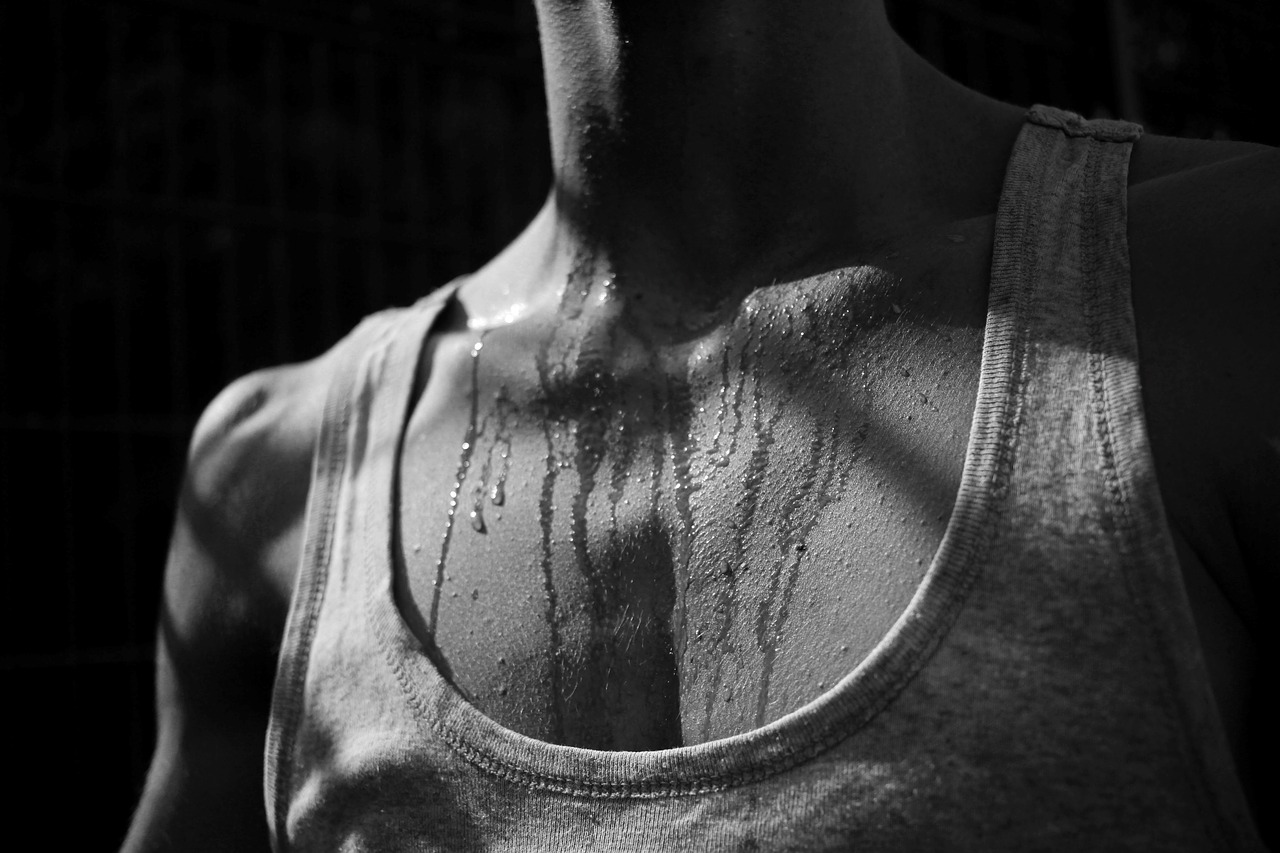Overcoming Heroin Addiction in Baltimore
Heroin addiction is one of the most challenging and life-altering forms of substance abuse. In Baltimore, a city that has faced a significant heroin epidemic, countless individuals struggle with the far-reaching consequences of addiction. Overcoming heroin addiction is a difficult but achievable goal, with professional treatment and support playing a critical role in long-term recovery.
Couples Rehabs, based in Baltimore, provides tailored treatment programs designed to help couples overcome addiction together, offering a path toward healing and recovery. This article will explore the process of overcoming heroin addiction, the available treatment options, and how Couples Rehabs can support couples in their journey to sobriety.
Understanding Heroin Addiction
Heroin is an opioid drug derived from morphine, a substance found in the opium poppy plant. It is highly addictive and can rapidly lead to physical dependence, where individuals experience intense cravings and withdrawal symptoms if they stop using. Heroin addiction affects not only the physical health of users but also their mental well-being, relationships, and overall quality of life.
The Impact of Heroin on the Brain
Heroin hijacks the brain’s reward system by binding to opioid receptors, producing intense feelings of euphoria. Over time, this process alters the brain’s chemistry, making it difficult for users to feel pleasure from anything other than the drug. Repeated heroin use also impairs cognitive functions, leading to memory loss, difficulty concentrating, and decision-making problems. Understanding these effects is crucial for individuals and families looking for effective treatment options to combat heroin addiction.
The Importance of Professional Treatment for Heroin Addiction
Overcoming heroin addiction without professional help can be dangerous and is often unsuccessful due to the drug’s intense physical and psychological grip. At Couples Rehabs in Baltimore, the focus is on providing specialized care designed to address the unique needs of individuals and couples struggling with heroin addiction.
Medical Detoxification
The first step in overcoming heroin addiction is detoxification, where the body rids itself of the drug. Medical detox is often necessary due to the severe withdrawal symptoms that can accompany heroin cessation. These symptoms include nausea, vomiting, anxiety, muscle pain, and intense cravings. At Couples Rehabs, medically supervised detox ensures a safe and comfortable withdrawal process, with healthcare professionals available to manage symptoms and provide support.
Inpatient Treatment for Heroin Addiction
For many individuals, inpatient treatment is the most effective approach to overcoming heroin addiction. Inpatient rehab programs provide a structured, supportive environment where individuals can focus solely on their recovery. Couples Rehabs offers comprehensive inpatient programs in Baltimore that allow couples to heal together, fostering mutual support while also receiving individualized care.
During inpatient treatment, clients participate in a range of therapeutic activities, including individual counseling, group therapy, and behavioral therapies aimed at addressing the underlying causes of addiction. The goal of inpatient rehab is not only to help individuals stop using heroin but also to teach them new coping mechanisms to prevent relapse.
Outpatient Treatment Options
While inpatient treatment is highly effective, it may not be feasible for everyone due to work, family, or other commitments. Outpatient treatment offers a flexible alternative for those who require heroin addiction treatment but cannot commit to a full-time residential program. Couples Rehabs in Baltimore offers various outpatient programs that allow individuals to receive therapy and support while continuing to live at home.
Intensive Outpatient Programs (IOPs)
Intensive outpatient programs (IOPs) offer a higher level of care than traditional outpatient programs, making them ideal for those who need more support but cannot commit to inpatient treatment. IOPs at Couples Rehabs include daily or weekly therapy sessions, group counseling, and medical support, all while allowing clients to maintain their daily routines. This option is particularly beneficial for couples who wish to support each other in recovery while balancing other responsibilities.
Traditional Outpatient Programs
Traditional outpatient programs offer a more flexible schedule, with clients attending therapy sessions a few times a week. This type of treatment is typically recommended for individuals who have already completed an inpatient or IOP program and are looking for ongoing support. Couples Rehabs tailors its outpatient programs to meet the specific needs of couples, helping them strengthen their relationship while working toward sobriety.
The Role of Behavioral Therapies in Heroin Addiction Recovery
Behavioral therapies are a cornerstone of heroin addiction treatment and play a crucial role in helping individuals and couples overcome addiction. At Couples Rehabs in Baltimore, a variety of evidence-based therapies are used to address the emotional, psychological, and behavioral aspects of addiction.
Cognitive Behavioral Therapy (CBT)
Cognitive Behavioral Therapy (CBT) is one of the most effective treatments for heroin addiction. This therapy helps individuals identify and change negative thought patterns and behaviors that contribute to substance use. CBT also teaches coping strategies to manage triggers and cravings, reducing the risk of relapse. Couples Rehabs integrates CBT into both individual and group therapy sessions, allowing couples to work through their issues together while also focusing on personal growth.
Contingency Management
Contingency Management is another proven approach to treating heroin addiction. This therapy involves rewarding individuals for positive behaviors, such as staying sober or attending therapy sessions. By reinforcing positive actions, Contingency Management helps individuals stay motivated throughout their recovery journey. At Couples Rehabs, this therapy is often used in conjunction with other treatment modalities to enhance motivation and long-term success.
Motivational Interviewing
Motivational Interviewing (MI) is a counseling approach that helps individuals explore and resolve their ambivalence toward treatment. This therapy is particularly beneficial for individuals who are unsure about their readiness for recovery. At Couples Rehabs, therapists use MI to engage clients in meaningful conversations about their goals and aspirations, empowering them to take ownership of their recovery.
Medication-Assisted Treatment (MAT) for Heroin Addiction
Medication-Assisted Treatment (MAT) is a highly effective approach to heroin addiction that combines behavioral therapies with FDA-approved medications. These medications help reduce cravings and withdrawal symptoms, making it easier for individuals to focus on their recovery. Couples Rehabs in Baltimore offers MAT as part of a comprehensive treatment plan, allowing couples to benefit from a combination of medication and therapy.
Common Medications Used in MAT
- Methadone: Methadone is a long-acting opioid that helps reduce cravings and withdrawal symptoms without producing the euphoric effects of heroin. It is typically administered daily in a clinical setting.
- Buprenorphine: Buprenorphine is another medication commonly used in MAT. It helps reduce cravings and withdrawal symptoms and can be prescribed in various forms, including tablets and films.
- Naltrexone: Naltrexone is an opioid antagonist that blocks the effects of heroin, preventing users from experiencing a high if they relapse. It can be taken orally or administered as an extended-release injection.

The Importance of Aftercare and Relapse Prevention
Recovery from heroin addiction is an ongoing process that requires long-term support. After completing a formal treatment program, individuals must continue to engage in aftercare to prevent relapse. Couples Rehabs in Baltimore offers a variety of aftercare services designed to help couples maintain their sobriety and strengthen their relationship post-treatment.
Sober Living Homes
Sober living homes provide a supportive, drug-free environment for individuals transitioning from rehab back into their everyday lives. These homes offer a structured setting where individuals can continue to practice the skills they learned in treatment while receiving ongoing support from their peers. Couples Rehabs offers access to sober living homes in Baltimore, giving couples the opportunity to live together in a recovery-focused environment.
Support Groups
Support groups, such as Narcotics Anonymous (NA), play a critical role in maintaining long-term sobriety. These groups provide a space for individuals to share their experiences, receive encouragement, and stay accountable in their recovery. Couples Rehabs encourages clients to participate in support groups as part of their aftercare plan, helping them build a strong support network that extends beyond the rehab facility.
Continued Therapy
Many individuals benefit from continued therapy even after completing a formal treatment program. Ongoing counseling allows individuals to address any lingering emotional or psychological issues and receive support as they navigate life in recovery. Couples Rehabs offers continued therapy options for couples, helping them maintain healthy communication and strengthen their relationship as they move forward in their recovery journey.
How Couples Rehabs in Baltimore Can Help
At Couples Rehabs in Baltimore, we understand the unique challenges that couples face when struggling with heroin addiction. Our specialized treatment programs are designed to help couples overcome addiction together, fostering a supportive and healing environment where both partners can work toward recovery.
Whether you and your partner are seeking inpatient care, outpatient services, or aftercare support, Couples Rehabs provides personalized treatment plans that address the physical, emotional, and relational aspects of heroin addiction. Our experienced team of healthcare professionals is committed to helping couples rebuild their lives and relationships while achieving lasting sobriety.
Conclusion
Overcoming heroin addiction is a complex and challenging journey, but it is possible with the right support and treatment. Couples Rehabs in Baltimore offers comprehensive, evidence-based treatment programs that allow couples to heal together while building a foundation for a healthier future. From medical detox and inpatient rehab to outpatient services and aftercare support, Couples Rehabs is dedicated to helping couples overcome addiction and achieve long-term recovery.
If you and your partner are struggling with heroin addiction, reach out to Couples Rehabs in Baltimore today. Our compassionate team is here to guide you on the path to recovery, providing the tools and support you need to reclaim your lives from addiction.



Recent Comments